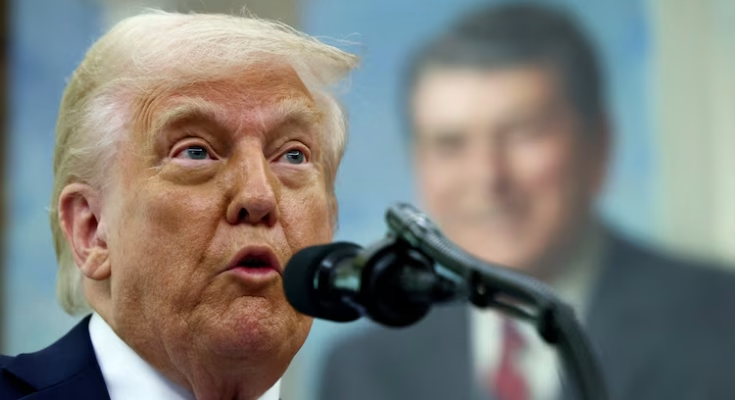Auto tariffs set to kick in within days present car buyers with a tough decision: Do they rush to dealerships now to avoid potential price hikes that could total thousands of dollars?
Experts speaking with Family US News are urging buyers to act quickly, although they stress the importance of not skipping key steps like comparing prices and exploring borrower-friendly loan options.
The exact timing of the price increases remains uncertain. Some experts suggest the hikes may take effect as soon as next week, while others speculate they could come months later, when dealerships run out of tariff-free stock. Regardless, experts agree that this uncertainty makes it wise to consider speeding up your purchase.
Joseph McCabe, president and CEO of AutoForecast Solutions, explains, “With so much uncertainty around when and how much the tariffs will hit, many people will likely head to dealerships sooner rather than later.”
Set to take effect on April 3, the 25% auto tariffs will apply to a wide range of imported vehicles, including cars, SUVs, minivans, light trucks, and cargo vans, according to a White House statement released after President Trump’s remarks in the Oval Office.
Industry analysts predict that the tariffs will drive up prices for foreign-made vehicles, as importers may pass the added costs on to consumers.
Cars built in the U.S. are also expected to see substantial price increases due to higher costs for imported parts and increased demand for domestic alternatives. As Kimberly Palmer, a personal finance expert at NerdWallet, explains, “It’s a complex situation, but the bottom line for consumers is clear: car prices are going up.”
Palmer suggests that if buying a car is already part of your financial plan, it might make sense to accelerate your purchase. “If you know you need a car and it’s already worked into your budget, speeding up your timeline could save you a lot in the long run,” she said.
Aaron Bragman, Detroit bureau chief at Cars.com, puts it simply: “Try to get a vehicle now if you can.”
According to Dan Ives, managing director of equity research at Wedbush, the tariffs could lead to price increases ranging from $5,000 to $10,000 per vehicle. The added costs could even hit $20,000 for some models, warns Art Wheaton, director of labor studies at Cornell’s School of Industrial and Labor Relations.
The extent of these price increases will depend on factors like where the vehicle or its parts are made and how well manufacturers think consumers can handle the higher costs, experts say.
There’s also the possibility that a rush of buyers in the coming days could drive prices even higher. “If everyone floods the market, prices will certainly go up,” said Prasad Venkatesh, senior VP of research and innovation at the Center for Automotive Research.
Used car prices are also expected to rise, as higher prices for new vehicles will push more buyers toward pre-owned options, experts predict.
After the tariffs go into effect, some automakers may even halt production of lower-priced models, McCabe notes, as they struggle to absorb the added tax costs. “Affordable vehicles, especially those under $30,000, could be squeezed out of the market entirely,” he warns.
While the potential savings from buying a car before the tariffs hit are significant, rushing the purchase carries risks. Higher interest rates are already driving up borrowing costs for car loans, which means buyers may face steep monthly payments even if the vehicle itself is relatively inexpensive.
Experts recommend car buyers check their credit reports to correct any errors before applying for loans, as this can help secure lower interest rates. However, this process can take several weeks, which may not fit into a rushed timeline.
Finally, don’t forget that the new tariffs will likely increase car repair and insurance costs, adding further financial strain for car owners. As Palmer cautions, “Buying a car is a big financial commitment. You don’t want to rush into it if you’re not fully ready.



